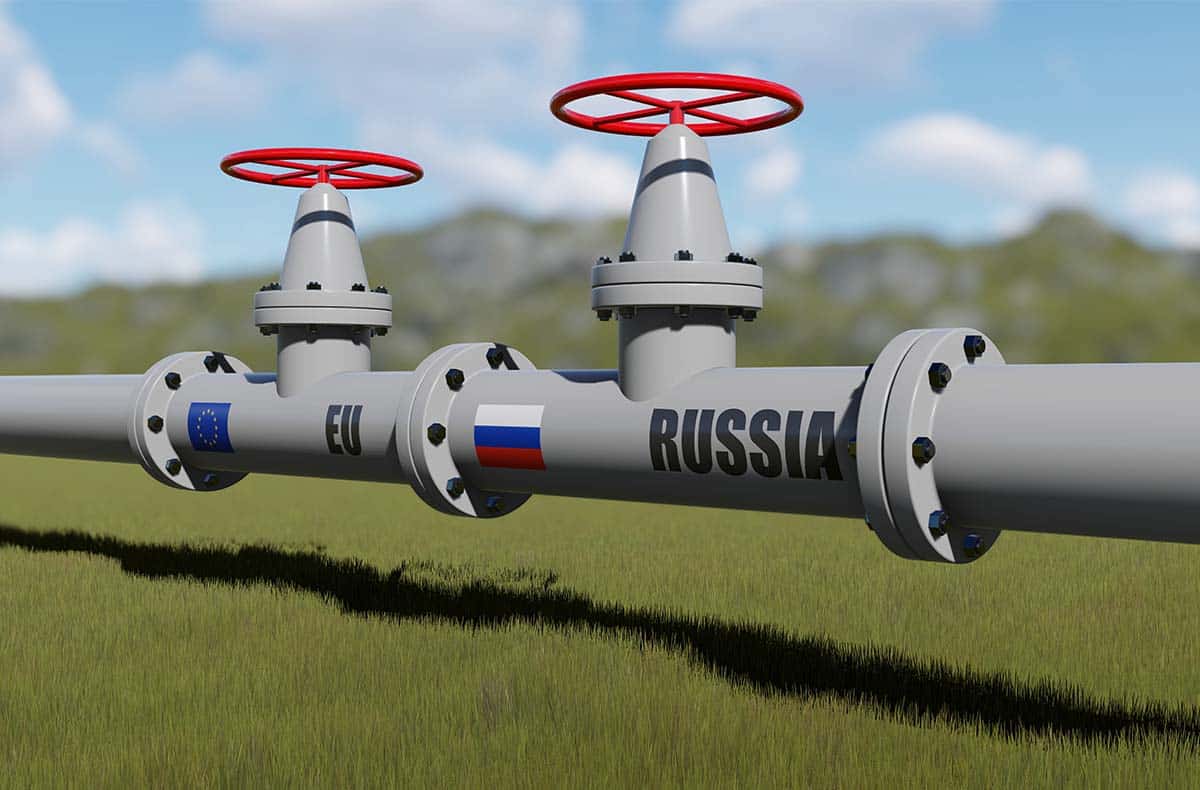
For almost 20 years, Britain has been a net importer of energy. In retrospect, that alone should be enough to provoke a facepalm, given the war in Ukraine, soaring oil and gas prices, and the rise of hostile geopolitics. Like other European powers, we have allowed ourselves to fall into a fragile position with no fallback plan. Nobody asked the simple question: what if someone turns off the pipeline? We have been, quite frankly, somnambulant.
Although countries like Poland and Bulgaria might have just enough reserves to prevent total disaster in the winter, that is not the case for western European countries, many of whom have allowed themselves to rely on the goodwill of Vladimir Putin to keep the lights on. Germany, in particular, is in a perilous state, forcing it to go cap-in-hand to other European Union states last week to help with its energy needs. Quite a humiliation for the giant of Europe.
In Britain, part of it has been the green agenda. With an ambitious “net zero” target taking precedence over the demands of energy independence, we have dialled down our own production of fossil fuels in favour of importing it from overseas. Looking back, it should have been obvious that the planet is not harmed any less if our oil comes from Gulf states rather than off the coast of Scotland. But flushed with the virtue of going green, nobody bothered raising this point.
Our North Sea gas exploration has been gradually mothballed. Unlike the United States, we have failed to give the green light to shale gas extraction, or “fracking”. Instead, we have committed to huge subsidies to green energy producers before they have achieved the ability to generate enough electricity to make up the difference.
Whoever gains the keys to Number 10 next month will be forced to have the country’s energy crisis high on their list of priorities. A knotty problem indeed. Earlier this year, the Johnson administration announced its intention to have 25 percent of Britain’s energy created by nuclear power by 2050, representing an increase of about 16 percent. But Britain’s creaking nuclear reactors are reaching the end of their lifecycle, so this would entail a massive—indeed, Johnsonian—infrastructure project.
This would be made achievable, the Government hoped, by moving away from the traditional monolithic nuclear power plant to “small module reactors,” which may be positioned in towns across the country (buying local support by promising low energy prices to people living close to the new reactors) or clustered together to resemble a larger facility.
This is popular with the public, two out of three of whom support it. But once the new plants begin to become a reality, their neighbours might not be so relaxed, provoking so-called NIMBY (Not In My Back Yard) objections.
Moreover, actually constructing the reactors is a challenge in itself. Globally, experience of such projects is thin on the ground, with expertise pooled in China—ruled out due to security concerns—and in the French firm EDF, which is already occupied with building 14 nuclear power stations across the channel. The Government’s possible solution to this is to buy reactor designs and manufacture them using British companies like Rolls Royce. This, of course, is hardly a quick and easy option.
In the meantime, we could frack. We could also build more onshore wind farms, which is more likely to show quick results (possibly before the country next goes to the polls in 2024). Both have their own committed objectors, for different reasons, both outside and inside Parliament. Green lobbyists fear the repercussions of fracking, while nimbyist local officials hate the prospect of England’s green and pleasant countryside being disfigured with thousands of white windmills. Both may affect Tory electoral support in battleground constituencies.
But now the time for talk has passed. It is time for action. President Biden’s recent visit to Saudi Arabia, which aimed to result in greater oil production to ease global prices, was not an untrammelled success. With Putin turning off the gas taps to Europe, and energy prices ballooning wildly for ordinary people in Britain, the next prime minister will have no choice but to expedite plans to produce electricity on our own shores. That will involve more wind facilities; it will involve fracking; it will involve nuclear; it will involve lifting restrictions on North Sea exploration and production and putting out more solar panels, whether waterborne or on the roofs of municipal buildings.
There will be many people in the country who won’t like it. But the inexcusable complacency of the last two decades has been punctured by the belated realisation that we live in a hostile and unpredictable world. The war in Ukraine has felt like the 20th century breaking through into modern times. We can no longer afford for our energy policy to be the same.



